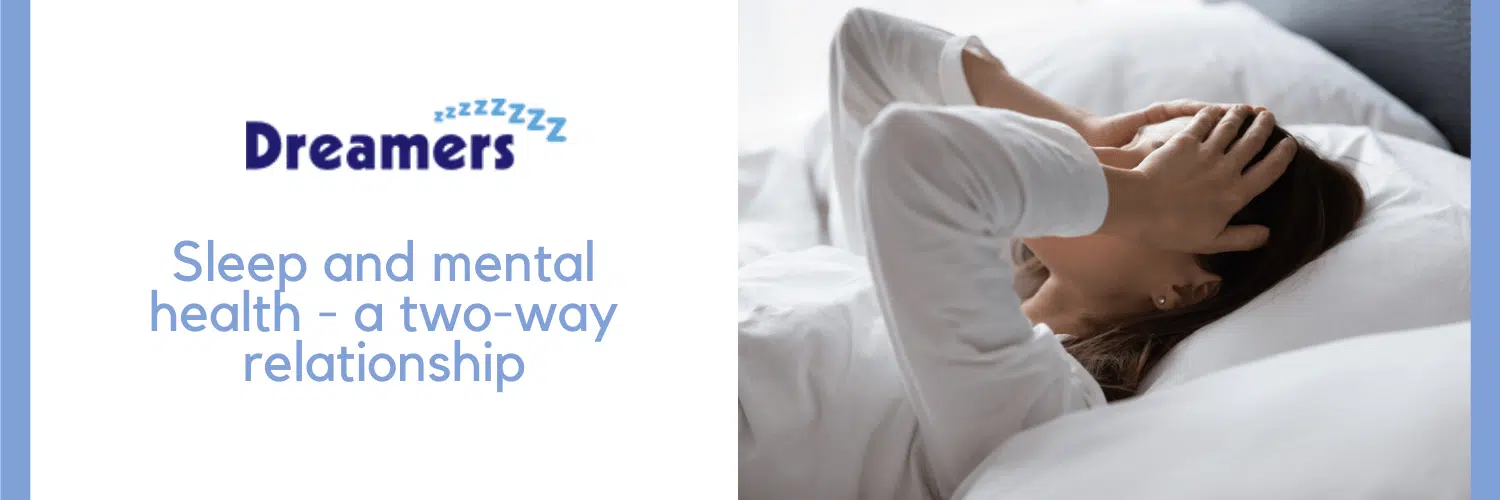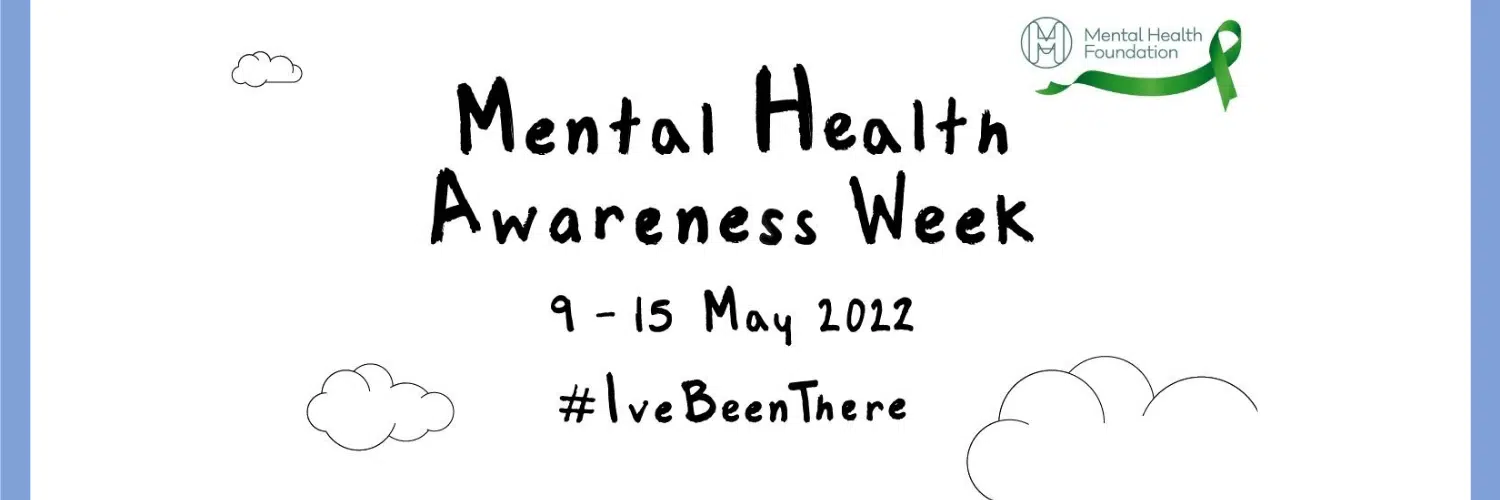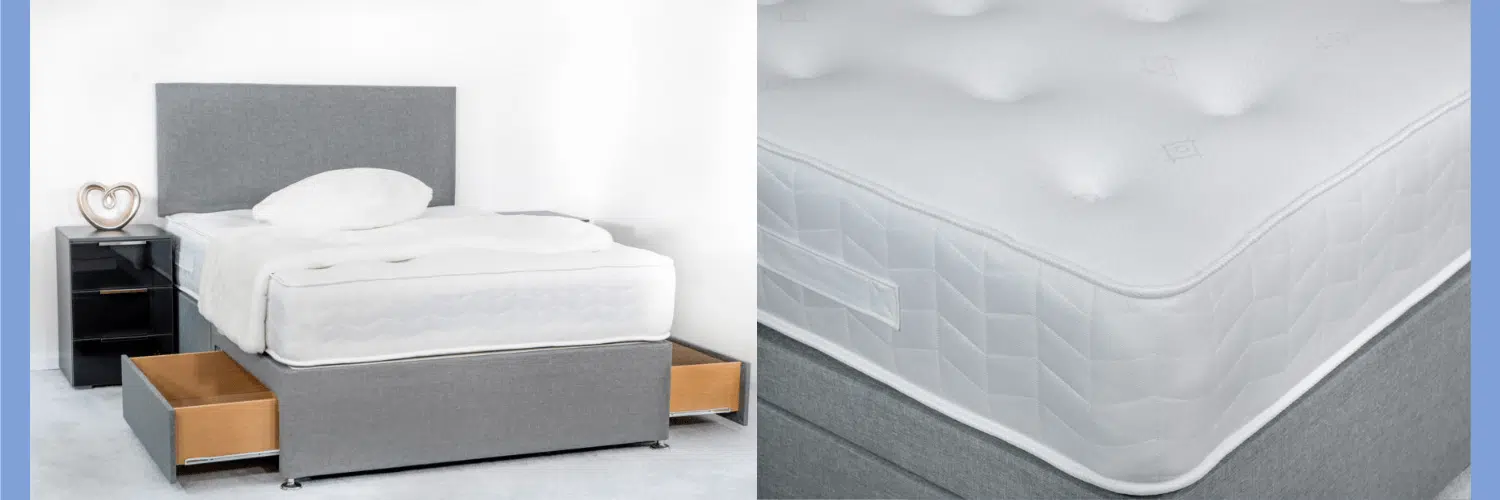Sleep and mental health – a two-way relationship
Did you know, today marks the start of Mental Health Awareness Week 2022? Over the last couple of years, millions of us have experienced a mental health problem or seen a loved one struggle due to the pandemic. In fact,...

Did you know, today marks the start of Mental Health Awareness Week 2022?
Over the last couple of years, millions of us have experienced a mental health problem or seen a loved one struggle due to the pandemic. In fact, the prevalence of anxiety and depression is up by 25% globally, and the full psychological impact of lockdowns and restrictions is still emerging.
Which is why, this year, we want to show our support.
Hosted by the Mental Health Foundation, the event is designed to help people better understand and manage their mental health. And as industry experts in sleep, we thought we’d do our bit and shed a little light on the link between your 7 hours of shut-eye and emotional wellbeing.
Sleep and mental health have a very close two-way relationship. And the power of a high-quality mattress, and a good night’s rest, should never be underestimated.
Here we take a closer look at why.
The effect of sleep (or lack of sleep) on our mental health
Recently, researchers at Brigham and Women’s Hospital (Boston) evaluated adults and their sleep patterns before and after the pandemic. And found that a lack of sleep during lockdown was associated with a range of negative mental symptoms – such as depression and anxiety.
Their results speak to the importance of sleep on our mental health.
Due to work, family, and other life commitments, very few of us get our recommended 7 hours each night – and having an extra coffee to get us through the day quickly becomes the norm. But that missed sleep can lead to a wide range of psychological issues, including:
- – depression
- – low mood
- – anxiety and panic
- – irritability
- – forgetfulness
- – lack of concentration
- – poor cognitive function
And in turn, those psychological issues can affect how well we sleep.
Think about it. The more anxious and depressed you feel, the harder it’s likely to be for you to drop off. Negative thoughts may be racing through your mind. Your heart may be pumping fast. Your muscles tense. All of which can make it incredibly difficult to relax and fall asleep.
It’s a bit of a vicious circle. But fortunately, one that can be broken with a few simple strategies.
How to sleep better:
HEAL your sleep, improve your mental health
The Mental Health Foundation has created various ‘How To’ guides to support people living with mental ill-health; one of which focuses on how to sleep better. This offers fantastic advice on how to HEAL common sleep issues and (hopefully) improve your mental wellbeing in the process.
So if you’re struggling, why not give it a go? Here we’ve summarised the key points. Just have a quick read, attempt to break the vicious circle and let us know how you get on.
H – health
Everything from a minor headache to chronic back pain can affect our ability to drop off and get essential rest. Therefore, if you think a physical health problem could be the root cause of your poor quality sleep, it may be worth speaking to a pharmacist or booking an appointment with the GP.
They may be able to address the physical issue with medication or treatment.
E – environment
Now that working from home is more common, separating your work life from your home life has become increasingly difficult. How do you switch off from work when your laptop and files are permanently in the corner of the bedroom? It’s tricky, but it’s important to make a distinction.
The bedroom needs to be a place you associate with sleep – not stress. So, try to remove any distractions. It’s better to work in a different room, but if that isn’t possible, always put your work equipment in a drawer at the end of the day. Out of sight, out of mind.
Be mindful of the presence of gadgets and electronics, such as computers, smartphones, tablets and TVs. As these devices are backlit with ‘blue light’, they can suppress the production of melatonin – a hormone that makes you sleepy. So you should avoid using them at least 2 hours before bedtime.
It also goes without saying, a good night’s sleep always has to start with the right bed. It’s crucial that your mattress meets all of your sleep needs and preferences. If you’ve noticed that yours doesn’t, this may be what’s keeping you awake at night – and it’s probably time to look for an update.
A – attitude
Trying to get to sleep can be frustrating – particularly if you have a big day ahead. But lying awake in bed, getting more and more panicked as the seconds tick by, can make it much harder to doze off.
Instead, it’s better to get up and do something that helps you relax.
Perhaps make a mug of hot milk? Read a book? Or maybe try mindfulness? The Mental Health Foundation have a brilliant ‘three-minute breathing space’ podcast narrated by Ed Halliwell – one of the world’s leading mindfulness teachers – which is a great way to calm your mind and body down.
The key is, only return to bed when you actually feel sleepy.
L – lifestyle
There are a number of simple things you can do each day to help improve the quality of your sleep.
For a start, try to reduce your caffeine intake by drinking less tea and coffee, and avoid alcohol – as these can all have a big impact on your sleep cycle. On the contrary, rice, oats and dairy products can produce chemicals that increase our desire to sleep. So it’s worth introducing these to your diet.
Exercising regularly is also believed to help us sleep – as, among other things, it can reduce anxiety and relieve stress. But you do need to time it right. Exercise increases the body’s adrenaline production, which can make it more difficult for you to drop off. So rather than hitting the gym late at night, it’s much better to get up an hour earlier and go for a brisk morning run instead.
We’re always here to help
Unfortunately, sleep and mental health are inextricably linked.
Living with mental ill-health can affect how well you sleep, and poor sleep can increase your risk of experiencing a mental health problem. But that doesn’t mean you can’t break the cycle. If you’re struggling, there are countless resources available to help – including a range of services and organisations that are on hand to offer their support 24/7.
More information on these can be found here.
What’s more, if you think your bed may be contributing to the poor quality of your sleep, you’re always welcome to get in touch with our team – here at Dreamers Bed Centre. We’d be glad to help in any way that we can and can advise on the best mattress and bed style to suit your specific needs.
Simply give us a call on 01942 275 464 or send an email to info@dreamersbedcentre.co.uk and we’ll respond to your enquiry as soon as possible.





